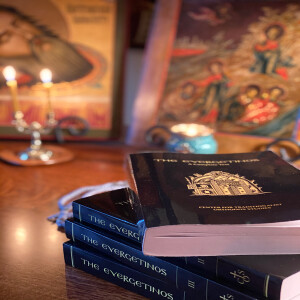

The Evergetinos - Hypothesis XXVIII, Part III and Hypothesis XXIX, Part I
It’s hard to imagine the depths of the beauty of the fathers’ insights into the nature of spiritual warfare. Having read the writings of the fathers throughout the years, it’s not an easy thing to say that that Hypotheses 28 and 29 are the finest description I’ve ever read not only on the nature of asceticism but of spiritual warfare. The compiler of The Evergetinos draws together the wisdom of the fathers in such a way that it paints an image of such detail that it creates a visceral experience and compels one to do some soul-searching. Are we engaged in the spiritual battle and aware of its nature? Do we understand the nature of the enemy that we war against and his tactics? Do we understand that there is no neutral territory in this world in regards to the spiritual life? The enemy is a tyrant and those who give themselves over to him freely will find them selves under his control. “From among men who have been taken captive by barbarians and are under the thumb of a tyrant, all those who rejoice at the successes of the enemy by whom they have been captured gladly remain close to the foe, without fetters and confinement, and struggle for the victory of the enemy, and, in fact, are used as spies, to the detriment of their compatriots.” All those who wish to be free from bitter slavery to the enemy must undertake open warfare against him. It is necessary for strugglers to call on the aid of God unceasingly. He is not only our ally but our only hope in the battle. It is by His Grace and strength that we can conquer the persistent and merciless enemy.
---
Text of chat during the group:
More Episodes
All Episodes>>You may also like
Create Your Podcast In Minutes
- Full-featured podcast site
- Unlimited storage and bandwidth
- Comprehensive podcast stats
- Distribute to Apple Podcasts, Spotify, and more
- Make money with your podcast










